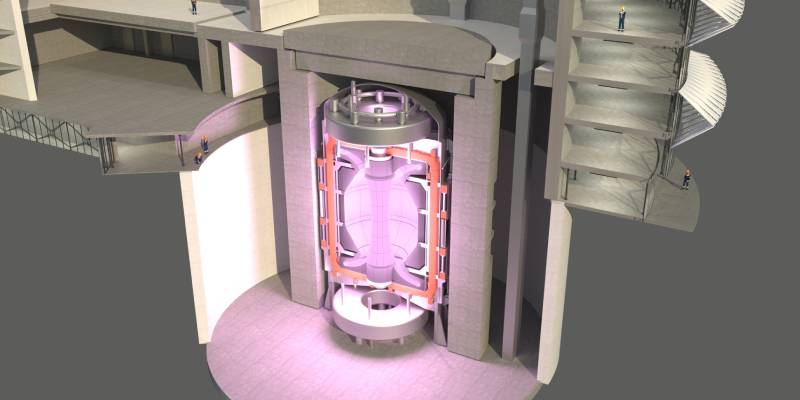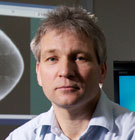York science at the heart of ambitious fusion energy bid
Posted on 2 February 2022
York scientists are at the centre of an ambitious bid to bring a prototype low carbon fusion energy plant to Yorkshire.

Image courtesy of UKAEA.
Successful fusion would provide humankind with a sustainable, carbon-free source of energy, helping the UK to meet its long-term climate change targets and reducing our dependence on unsustainable, polluting fossil fuels.
A site in Goole, East Yorkshire has been shortlisted as one of five by the UK Atomic Energy Authority (UKAEA) to host a fusion reactor with the potential to demonstrate limitless supplies of low-carbon, green energy.
If the bid is successful, the Spherical Tokamak for Energy Production programme (STEP) could place Goole and the wider Yorkshire region at the heart of efforts to create sustainable energy by copying the natural processes that power the sun and the stars.
Underpins
Research carried out by Professor Howard Wilson (from the University’s School of Physics, Engineering and Technology, and the York Plasma Institute) into plasma science and magnetic confinement fusion underpins and informs the East Yorkshire bid.
Professor Wilson was the first director of the STEP project while on secondment to UKAEA.
“Fusion is the most fundamental form of energy that you could imagine, and what we are trying to do is to reproduce the fusion conditions of the sun here on Earth,” said Professor Wilson.
“Successful fusion would provide humankind with a sustainable, carbon-free source of energy, helping the UK to meet its long-term climate change targets and reducing our dependence on unsustainable, polluting fossil fuels.”
Fusion energy is created when two isotopes of hydrogen are fused to release energy, creating four million times more energy for every kilogram of fuel than burning coal, oil or gas.
Expertise
Professor Wilson and the team of researchers at YPI have a track record of expertise in plasma research developing a range of applications across industry and medicine, as well as fusion energy.
In addition to STEP, their work in energy applications includes a focus on issues linked to the successful operation of the ITER tokamak, the world’s largest magnetic fusion device presently under construction in the South of France and due for completion around 2025. The seven-member ITER partnership – comprising Europe, Russia, China, the United States, India, Japan and South Korea – brings together some of the brightest and best brains in the fusion field from around the world, with York’s scientists playing an important role in this international team.
STEP is an ambitious UK project to design a more compact version of a fusion device. York physicists support this national fusion research programme, which is led by UKAEA, and several of our PhD students are based at the Culham Science Centre working on key plasma physics aspects of its design - physics that often cuts across STEP and ITER.
The STEP prototype reactor is expected to be operational by around 2040. It will have many features of a fully operational power station, including infrastructure and associated research and development facilities. It will approach the scale and cost of a commercial power station, aiming to be among the first to demonstrate net electricity from fusion energy.
The final location decision for STEP is expected towards the end of 2022.
Collaborating
Our academics will continue to play a key role collaborating with UKAEA in the development of STEP alongside ITER, while also working with ambitious private fusion company programmes. As well as providing further technical expertise, they will be training the future fusion scientists as STEP moves towards a concept design by 2024 and engineering design beyond that.
“This is an exciting time to be involved in fusion,” said Professor Howard.
The text of this article is licensed under a Creative Commons Licence. You're free to republish it, as long as you link back to this page and credit us.

Discover the details
Join UKAEA engineers and scientists in a virtual community forum event on Wednesday 2 February 2022, where residents and stakeholders can find out more about the fusion process and energy production.
Sign up for the virtual community forum here
Find out more about our magnetic confinement research
Research centre
Visit the School
Explore more research

A research project needed to spot trees on historic ordnance survey maps, so colleagues in computer science found a solution.

We’re using gaming technology to ensure prospective teachers are fully prepared for their careers.

A low cost, high-accuracy device, could play a large part in the NHS's 'virtual wards'.
